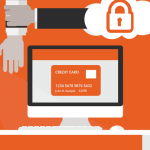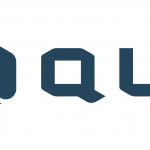The internet has grown massively over the last decade that there is no stone left unturned in terms of technology today. Aspects that were unheard of a few years back are not only a reality today, but is also thriving with full pace. Moreover, the internet has changed the way we have looked at things – it has made processes faster, easier, economical and most importantly, it ensures we get the best and most efficient results in the end.
However, with this bright side, there also come some major concerns related to the internet. With its knowledge and mode of operations being widespread and known by many, there arise some questions of serious threats. Security is one such aspect. Web security goes beyond keeping a track on personal data fed or released into the World Wide Web or ensuring online payments are done with the most care. It refers to keeping a strict check on the information you release, the security measures taken by you and updating your knowledge on how some important security related aspects on the internet work.
Phishing for one refers to the act of sending fraudulent emails while posing to be someone else, (generally a reputed company) and reaching out to individuals with a view to gain their personal data, passwords, bank details etc. With the advancement of technology and the extensive reach of the internet, faking an account or profile to look as good as the original one is not difficult – an important point that fraudsters know about while phishing. Such malicious activities result in serious crimes, where people have lost large sums of money and most of the times, the accounts are untraceable, leaving them helpless.
Another vital problem faced by many involves website hacking. Although multinational and global companies have a high-end security system, sometimes hackers use the trickiest ways to hack into organizations and get their hands on sensitive data. Such data, once breached is almost impossible to rescue completely, resulting in irreparable damage.
To avoid websites from being hacked, one should:
- Inform your support team immediately if such a situation arises
- Keep your CMS login, hosting login, web logs, FTP and sFTP access credentials, backups and other important data handy for ease of checking.
- Do a thorough check of your PC and all connected systems to ensure the virus is removed
- Take all the necessary steps in the future to prevent such malicious activities.
- If infected immediately pull off your website from the internet and go offline
The last step when it comes to web security is abiding by some basic online security practices to ensure complete privacy. For starters, prioritize your vulnerabilities and note down all key information safely for immediate access if an emergency arises. Next, create a web application security blueprint, prioritize your web applications and use cookies securely. You could also try conducting security awareness trainings for your team members and invest in the most efficient security platforms to safeguard your data.
While all of the above are excellent ways to safeguard your data and information, the best tip is to simply be a little extra cautious while releasing any data into the internet and keep an eye for anything that appears a little strange.






